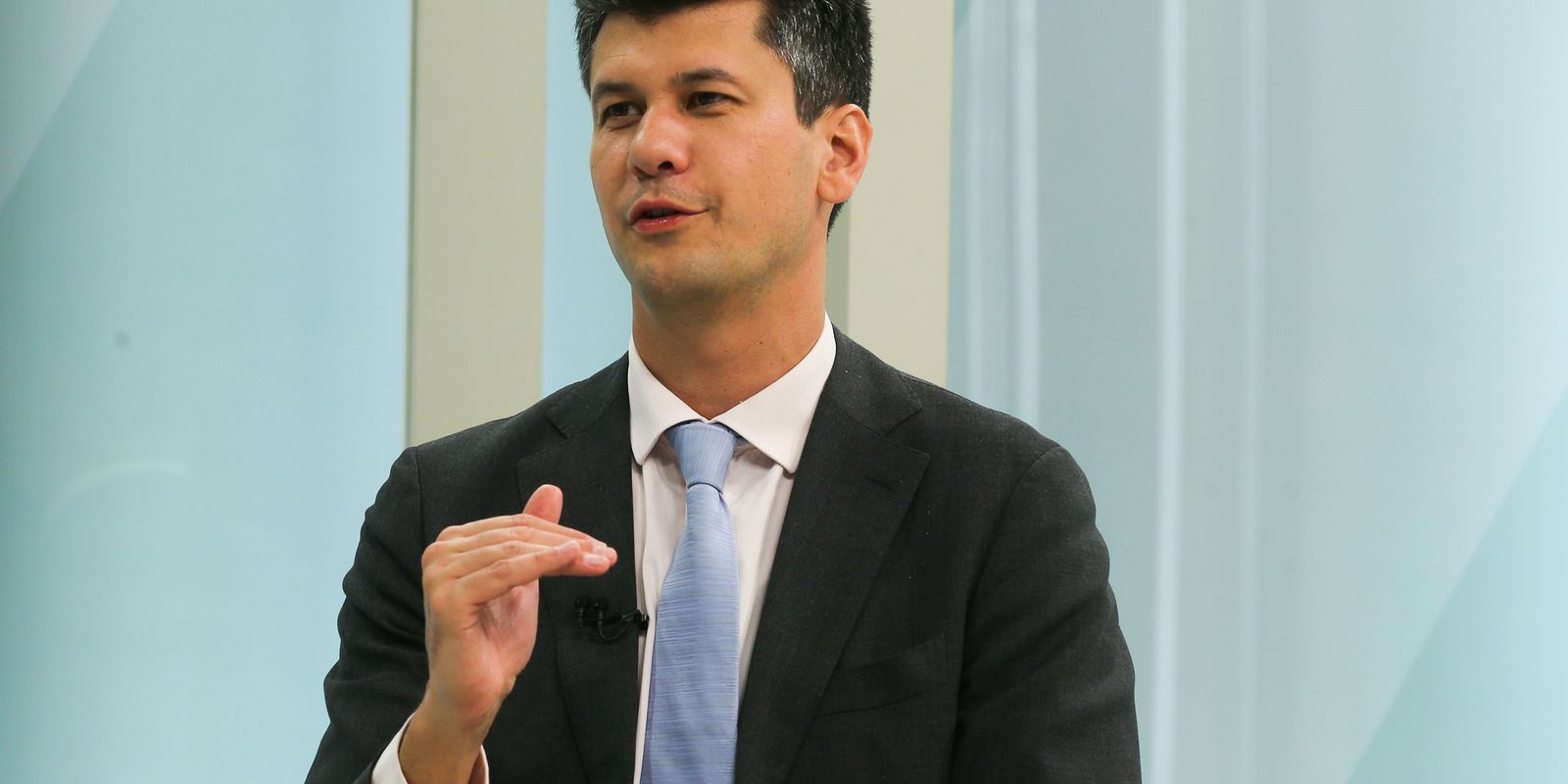The president of the National Bank for Economic and Social Development (BNDES), Gustavo Montezano, said today (7) that the alignment of a series of factors creates a favorable opportunity to conclude the privatization of Eletrobras later this year.
“Performing operations like this requires an alignment of several factors. And this alignment is not necessarily something static, something forever. We achieved the operational alignment of the company, the corporate alignment, a political alignment with the National Congress and an alignment with the control bodies, which approve the transaction”, said Montezano, referring to “a market window” for the realization of the transaction. operation, already approved by the National Congress and provided for by law.
“Right now, the alignment [dos fatores necessários à desestatização] is available and appears to be viable. Hence our recommendation, as a structuring [do processo de desestatização], so that Brazilian society can take advantage of this moment to strengthen its energy matrix and create a company that will be national pride. Like Vale do Rio Doce, which [privatizada] stopped being a Brazilian company to become an international company”, he said.
Montezano was one of the participants in the event that the Federal Court of Auditors (TCU) held today to discuss the proposal to capitalize the state-owned energy company. “We insist on the word capitalization because when we refer to privatization, people think of classic privatization, when an asset is [integralmente] transferred from the hands of the State to the hands of a buyer, an investor. In the case of Eletrobras, we are talking about capitalization, via the capital market”, explained the president of BNDES. The bank was contracted by the federal government to carry out the privatization process.
According to Montezano, the proposal already presented by the bank provides for the offer of Eletrobras shares, and not the sale of the company’s assets. The idea is that the Union, which currently holds 72% of the voting capital of the company, will have about 45% of participation with voting rights. The expectation of the federal government and BNDES is that this capitalization will inject approximately R$ 25.4 billion into Eletrobras’ cash flow.
“[A empresa] will use these resources to acquire concessions sold by the Union. In other words, part of this approximately R$ 25.4 billion will come out of the company’s cash to pay the granting bonus to the Federal Government, and [outra parte para] comply with the additional obligations already discussed and raised by the National Congress”, said the president of BNDES, referring to the R$ 6.7 billion that the government promises to invest in the revitalization of hydrographic basins and the R$ 2.1 billion that should fund the implementation of projects to ensure greater energy efficiency in the northern region of the country.
Also according to Montezano, the BNDES proposal provides for the transformation of Eletrobras into a corporation without a defined controller, but even if it ceases to be the controller, the Union will continue to be its largest shareholder. In addition, the suggestion is that assets considered geopolitically relevant, such as Eletronuclear and Itaipu, be separated from the part to be capitalized.
Transition
During the same event, the ministers of Mines and Energy, Bento Albuquerque, and of Economy, Paulo Guedes, defended the privatization of the company. Guedes said he believed that, after years of debate, the project had reached the final stretch. For him, the privatization will strengthen the company’s cash, at a time when the world is discussing the transition from the current energy model to a less polluting and more sustainable one.
“We are leaving a past legacy of this beautiful company, the largest in Latin America in energy generation, transmission and distribution, but which has been reaching its limits. Today, Eletrobras would need to invest R$ 15.7 billion per year to maintain the same level of relevance, but it can only invest R$ 3.5 billion. There are visible signs that if Brazil grows as we expect it to, in the coming years the company, with its current corporate structure, will not be able to [manter] investment capacity, not only putting itself at risk, but also jeopardizing the future of energy security in Brazil”, said Guedes.
The Minister of Mines and Energy said that, given the legal restrictions, state-owned companies do not have the necessary agility to adapt and remain relevant in a sector that is undergoing increasingly rapid changes. “With the proposed model [pelo BNDES]the Union will continue to be a relevant shareholder, benefiting from the future increase in value [de mercado] Eletrobras and the receipt of dividends. Brazilian society will benefit from relevant contributions to regional projects, including the revitalization of the São Francisco river basins and the Furnas complex, which are fundamental for the good management of water resources and the multipurpose of water, in addition to the implementation of clean energy in isolated and remote regions of the North of the country”, added Bento Albuquerque.
The president of Eletrobras, Rodrigo Limp, said that since 2014 the company’s market value jumped from R$ 9 billion to the current R$ 60 billion. And that, in the last three years alone, the company has accumulated around R$ 22 billion in profit. “Despite the positive evolution in all financial indicators, the company has been losing share in the sector, both in generation and in transmission”, said Limp when commenting that, in the last three years, Eletrobras invested, on average, R$ 3, 7 billion a year.
“When we look at the company’s future, the business plans foresee the investment, until 2026, of R$ 39 billion, that is, an average of R$ 8 billion. In 2022, the estimated investment value is BRL 5 billion. That is, the expectation is that this value will grow from 2023, with privatization”.









